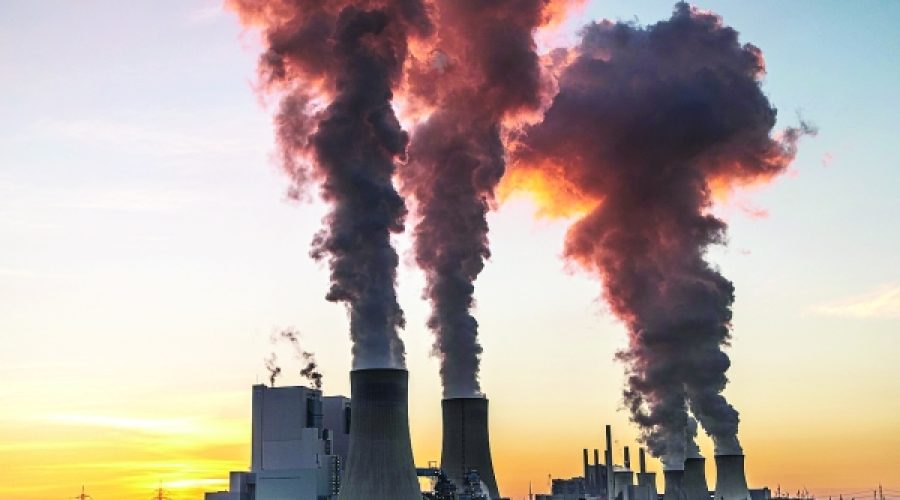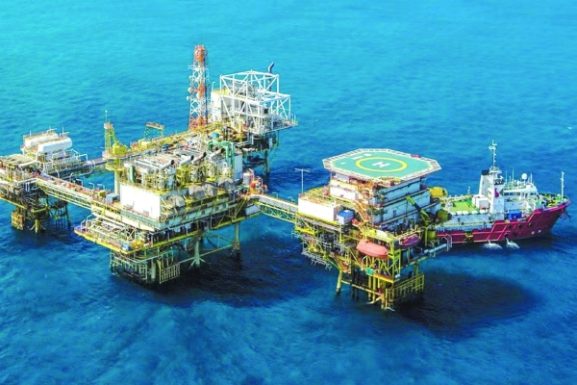اولین «گورستان» تجاری CO₂ جهان افتتاح شد: این اتفاق چه معنایی برای سرمایهگذاریهای تجاری پایدار و فرصتهای مدیریت کربن دارد؟
اسلو: کنسرسیوم شفق قطبی روز دوشنبه اعلام کرد که اولین سرویس ذخیرهسازی کربن تجاری جهان در سواحل نروژ، تزریق اولیه CO₂ به بستر دریای شمال را با موفقیت به پایان رسانده است.
پروژه شفق قطبی، به رهبری شرکتهای بزرگ نفتی Equinor، Shell و TotalEnergies، بر انتقال و ذخیره دائمی CO₂ جمعآوریشده از دودکشهای صنعتی مختلف در سراسر اروپا تمرکز دارد. هدف این ابتکار، جلوگیری از انتشار گازهای گلخانهای به جو و در نتیجه کمک به تلاشهای جهانی برای مبارزه با تغییرات اقلیمی است.
تیم هایجن، مدیرعامل شرکت Northern Lights، گفت: «ما اکنون با خیال راحت اولین CO₂ را به مخزن تزریق و ذخیره کردهایم. کشتیها، تأسیسات و چاههای ما اکنون کاملاً عملیاتی هستند.»
این فرآیند با جمعآوری CO₂ آغاز میشود، که سپس به مایع تبدیل شده و به ترمینال اویگاردن در نزدیکی برگن در ساحل غربی نروژ ارسال میشود. از آنجا، CO₂ به مخازن بزرگ منتقل میشود و سپس از طریق یک خط لوله ۱۱۰ کیلومتری (۶۸ مایلی) به بستر دریا، تقریباً به عمق ۲.۶ کیلومتر، برای ذخیرهسازی دائمی تزریق میشود.
فناوری جذب و ذخیره کربن (CCS) توسط هیئت بین دولتی تغییرات اقلیمی سازمان ملل (IPCC) و آژانس بینالمللی انرژی (IEA) به عنوان یک ابزار حیاتی برای کاهش تغییرات اقلیمی شناخته شده است، به ویژه برای کاهش انتشار گازهای گلخانهای از صنایعی مانند تولید سیمان و فولاد که کاهش انتشار آنها دشوار است.
تزریق اولیه CO₂ به مخزن شفق قطبی از کارخانه سیمان هایدلبرگ متریالز در برویک، جنوب شرقی نروژ، سرچشمه گرفت.
با وجود پتانسیل بالای آن، CCS همچنان پیچیده و گران است. در حال حاضر، بدون حمایت مالی، صنایع خرید مجوزهای آلودگی در بازار کربن اروپا را اقتصادیتر از سرمایهگذاری در جذب، انتقال و ذخیره CO₂ میدانند.
تا به امروز، شرکت Northern Lights سه قرارداد تجاری در اروپا منعقد کرده است: یکی با کارخانه آمونیاک Yara در هلند، دیگری با دو کارخانه سوخت زیستی Orsted در دانمارک و سومی با نیروگاه حرارتی Stockholm Exergi در سوئد.
این پروژه که عمدتاً توسط دولت نروژ تأمین مالی میشود، ظرفیت ذخیرهسازی سالانه ۱.۵ میلیون تن CO₂ دارد و قرار است تا سال ۲۰۳۰ این میزان به پنج میلیون تن افزایش یابد. — خبرگزاری فرانسه
تحلیل ویژه از عمانت | بازار عمان را کشف کنید
راهاندازی موفقیتآمیز پروژه ذخیرهسازی کربن شفق قطبی نروژ، نشاندهندهی یک تغییر اساسی به سمت ... جذب و ذخیره کربن در مقیاس تجاری (CCS)، که مسیری حیاتی را برای صنایعی که به دنبال کاهش انتشار گازهای گلخانهای در بخشهایی هستند که کاهش انتشار آنها دشوار است، برجسته میکند. برای مشاغل در عمان، به ویژه در صنایع نفت، سیمان و سنگین، این امر تأکید میکند که ... فرصت فوری برای سرمایهگذاری در فناوریهای CCS برای همسویی با تعهدات جهانی در مورد آب و هوا و عملیات آیندهنگر. سرمایهگذاران و کارآفرینان هوشمند باید این فضا را از نزدیک زیر نظر داشته باشند، زیرا پذیرش زودهنگام و مشارکت در CCS میتواند عمان را به عنوان یک رهبر منطقهای در شیوههای صنعتی پایدار تثبیت کند، در عین حال که چالشهای هزینههای اولیه بالا و نیاز به حمایت دولتی را نیز برطرف میکند.



